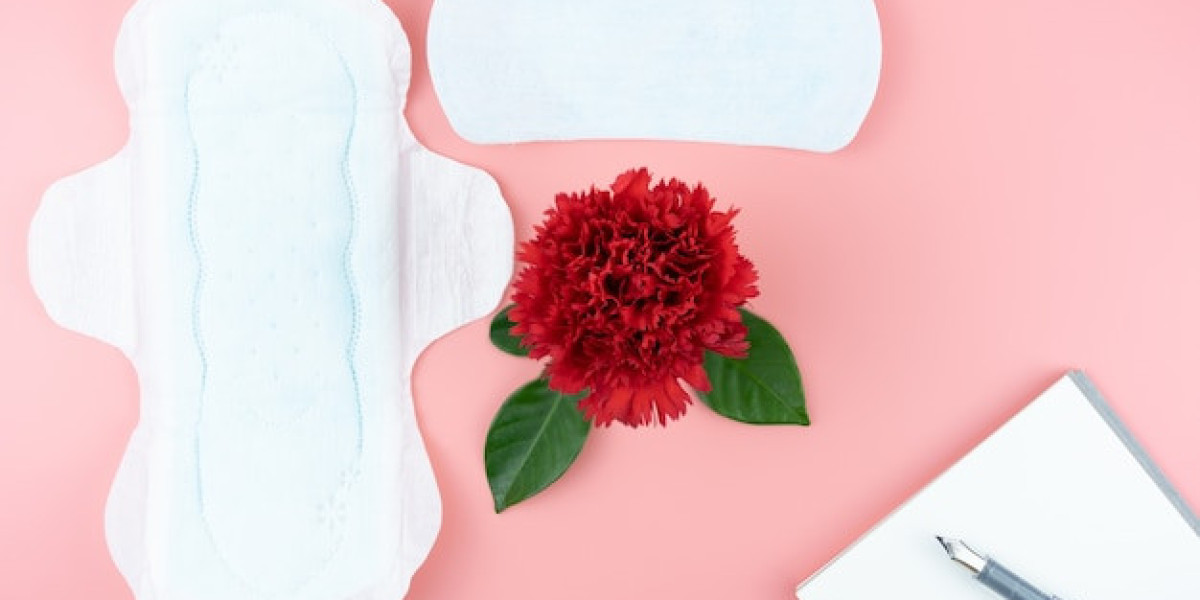Organic sanitary pads are revolutionizing menstrual care by prioritizing health and sustainability. Made from natural materials like organic cotton or bamboo, these pads are free from synthetic chemicals, which often cause skin irritation and may pose long-term health risks. Opting for chemical free menstrual products is especially beneficial for sensitive skin, as organic pads are gentle and breathable. Beyond health, their biodegradable materials significantly reduce environmental waste, making them an eco-friendly choice. Choosing organic pads supports personal wellness and aligns with a lifestyle focused on environmental responsibility.
What Are Organic Sanitary Pads?
Organic sanitary pads are menstrual products made from natural materials like organic cotton, bamboo, or hemp. Unlike conventional pads, which often contain synthetic materials and chemicals for absorbency and scent, organic pads are free from such additives. This helps minimize the risk of irritation and provides a more breathable, comfortable experience during the period cycle.
Why Choose Chemical Free Menstrual Products?
The skin in the vaginal area is sensitive and highly permeable, allowing chemicals in conventional pads to enter the bloodstream more easily. Chemical free menstrual products are an excellent choice for those with sensitive skin or allergies, offering a gentler, safer option for monthly cycles. Choosing organic can also align with personal values related to environmental sustainability and natural living.
Common chemicals in traditional pads:
Traditional sanitary pads often contain chemicals such as:
Dioxins and furans: Byproducts of the bleaching process.
Fragrances and artificial scents: Often added to mask odors.
SAPs (Super Absorbent Polymers): Chemicals that enhance absorbency but may cause skin irritation.
Phthalates and parabens: Found in synthetic components and associated with hormone disruption.
These chemicals can lead to skin irritation, hormonal imbalances, and other health concerns.
Health risks associated with these chemicals:
The chemicals found in conventional pads have raised health concerns due to their potential effects, such as:
Skin irritation and rashes: Due to synthetic materials and fragrances.
Hormone disruption: Phthalates and parabens can affect hormone levels.
Potential cancer risks: Dioxins, known carcinogens, can increase cancer risk with long-term exposure.
Benefits of Organic Sanitary Pads
Health benefits:
Organic pads eliminate exposure to harmful chemicals, reducing the risk of irritation, allergic reactions, and hormone disruption. They are particularly beneficial for individuals with sensitive skin, as they are free from synthetic materials and harmful residues.
Environmental impact:
Made from biodegradable materials, organic pads decompose naturally, reducing landfill waste. Their production methods, focused on sustainable farming practices, are less environmentally harmful than synthetic pads.
Comfort and effectiveness:
Organic XXL pads for overnight use are typically more breathable and softer on the skin, offering comfort and reduced risk of chafing. With absorbent materials like organic cotton, they are effective in handling menstrual flow without the use of synthetic chemicals.
Understanding the Difference: Organic vs. Conventional Pads
Key distinctions in manufacturing:
Conventional pads are often made from plastic, synthetic fibers, and chemically treated materials, while organic pads use natural fibers grown without pesticides or synthetic fertilizers. Organic pads also undergo minimal processing to retain the purity of natural materials.
Pros and cons of each type:
Organic Pads: Chemical free, biodegradable, skin-friendly, but often more expensive.
Conventional Pads: Widely available, generally lower in cost, but contain synthetic materials and chemicals that can pose health risks.
Materials Used in Organic Sanitary Pads
Cotton, bamboo, and other natural materials:
Organic sanitary pads primarily use natural fibers like cotton, bamboo, and hemp, which are biodegradable and safe for sensitive skin. Bamboo is particularly effective for its high absorbency and sustainable growth cycle, while organic cotton is known for its softness.
Certification standards for organic materials:
Look for certifications like GOTS (Global Organic Textile Standard) and OEKO-TEX to ensure that the materials in your pads meet high organic and safety standards. These certifications validate that the products are free from harmful chemicals and meet environmental and social responsibility guidelines.
How to Identify Genuine Organic Sanitary Pads
Labels to look for:
Look for labels such as "Certified Organic," "Chemical Free," or "Fragrance-Free." These labels can offer insights into the product's purity and environmental impact.
Trusted certifications and brands:
Certifications such as GOTS, OEKO-TEX, and USDA Organic indicate a product’s organic integrity. Trusted brands like Rael, Natracare, and Saathi specialize in organic menstrual products, ensuring they meet strict health and environmental standards.
Are Organic Pads Really Worth It?
Evaluating the cost:
While organic pads are more expensive than conventional ones, the investment may be worthwhile for those prioritizing health, comfort, and environmental responsibility.
Quality and longevity comparisons:
Organic pads offer quality comparable to conventional ones, with improved skin comfort and reduced health risks. Due to their natural materials, they might require more frequent changes but provide an overall safer experience.
Environmental Benefits of Using Organic Pads
Biodegradability and waste reduction:
Organic pads decompose faster than conventional pads, which contain plastics that can take hundreds of years to break down. This reduces the environmental footprint of menstrual products.
The impact of organic farming on the environment:
Using organic materials supports sustainable agriculture, reducing pollution, conserving water, and protecting biodiversity.
Potential Drawbacks of Organic Sanitary Pads
Higher cost:
Organic pads are often priced higher due to their eco-friendly materials and sustainable production practices. For some, this may be a barrier to regular use.
Accessibility and availability:
Organic products may not be available in all locations, making them harder to access than widely available conventional options.
How to Transition to Organic Sanitary Pads
Steps to switch smoothly:
Start Slowly: Try a few organic products before fully switching.
Choose the Right Absorbency: Familiarize yourself with the absorbency options to meet your needs.
Combine Products if Needed: Consider using organic pads with other menstrual products during the transition phase.
Tips on finding the right brand:
Research brands that align with your values, budget, and comfort. Consider reaching out for sample packs to try different products before committing.
Making Organic Pads a Part of Your Lifestyle
Integrating them into your routine:
Switching to organic pads can be a significant but manageable change. To make the transition smoother, establish a routine that includes stocking up on products and organizing your hygiene supplies.
Personalizing your period care:
Customizing your care routine to incorporate sustainable products like organic pads or adult diapers for incontinence, if needed, can have a positive impact on your mental health and the planet.
Conclusion
Switching to organic, chemical free sanitary pads offers a healthier, more sustainable choice for menstrual care. Free from synthetic chemicals, these pads are gentle on sensitive skin, reducing the risk of irritation and hormone disruption. Their biodegradable materials contribute to environmental conservation, aligning with values of natural living. While they may come at a higher price, the benefits in comfort, safety, and eco-friendliness make organic, chemical free pads a worthwhile investment. By choosing organic, individuals support their health and help foster a greener, more responsible approach to personal care.








